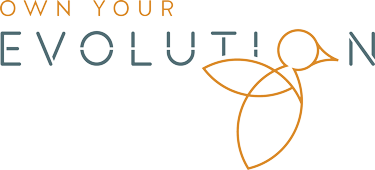Impost-Her Syndrome
Become your own {s}hero.
Welcome to your class on Impost-Her Syndrome 101. In order to enroll, you must frequently feel paralyzed by fears that you will be exposed for not being as awesome as others think you are or as capable as your degree dictates.

IMPOST-HER SYNDROME

Become your own {s}hero.
Welcome to your class on Impost-Her Syndrome 101. In order to enroll, you must frequently feel paralyzed by fears that you will be exposed for not being as awesome as others think you are or as capable as your degree dictates.
This class involves you challenging the idea that you must be perfect.
You should hold a strong belief system that you are sorely lacking in what it takes to succeed despite being knowledgeable, proficient, enlightened, educated and/or admired.
In 101, we will “out’ the thoughts that inform you that you’re an imitator, pretender and hoaxer in your line of life. We will put your thoughts on trial; the ones that whisper you’re fraudulent, incompetent, not well learned or experienced enough to tout yourself as an educator, artist, clerk, accountant, entrepreneur, sommelier, mother or worthy human.
This class involves you challenging the idea that you must be perfect. You will have times of great discomfort as you sit with itchy emotions. You’ll learn how to thrive and develop resiliency and internal strength; to embrace your own perfectly flawed human existence.
You will pass but only after you learn to become your own {S}hero. The final requirement once you pass is to share your story in order to free other women from the myth of being an Impost-Her.
What is imposter syndrome?
Imposter Syndrome as it was originally called was coined in 1978 by two psychologists, Pauline R. Clance and Suzanne A. Imes. Clance and Imes described the phenomena as mostly women who “despite external evidence of their competence….are convinced that they are frauds and do not deserve the success they have achieved. Proof of success is dismissed as luck, timing, or as a result of deceiving others into thinking they are more intelligent and competent than they really are.” One of the psychologists later said if they were to rename it they would call it “Imposter Experience” because so many women experience this.
I have faced this personally.
There has been many times in the last 24 years that I’ve asked myself at the end of the day if I really know what the hell I’m doing in my psychotherapy practice.
I help clients bust their limiting beliefs, educate them on neuroplasticity, call out cognitive distortions and soothe reactive amygdala’s. Scripts flow out of my mouth on how to have crucial conversations with partners, parents, bosses, borderline personality disordered sisters; yet there are times I find myself thinking that “everyone else” in my field knows the real, big important things and I do not.
Years ago, one of the ways I was able to circumvent these persistent thoughts, while building a thriving practice, was to read stories about women who created their jam in life; one unsteady step at a time.
Sheryl Sandberg, COO of Facebook and author of Lean In, said “every time I was called on in class, I was sure that I was about to embarrass myself. Every time I took a test, I was sure that it had gone badly. And every time I didn’t embarrass myself—or even excelled—I believed that I had fooled everyone yet again. One day soon, the jig would be up.”
Sonia Sotomayor, the Supreme Court justice has said that at Princeton, she felt like she was waiting for someone to tap her on the shoulder and say, “You don’t belong!”
Jody Foster once said she thought it was a “fluke” she was accepted to Yale. And after winning an Academy Award thought everybody would find out, and they’d take the Oscar back. “They’d come to my house, knocking on the door, ‘Excuse me, we meant to give that to someone else. That was going to Meryl Streep.”
I told myself that if Sandberg, Sotomayer, and Foster had these same feelings and ideas, but persisted anyway, that I would as well.
Truthfully, Impost-Her Syndrome can be a big, old grand distraction from playing largely in life; an (unconscious) excuse to hide and not shine as brightly as you meant to. So, how do we overcome the thoughts that keep you feeling like a fraud?
Heal Your Wounds:
Find the wounds of unworthiness and start to heal them. Where and when were you told you were not enough? Did you learn at the feet of hyper-critical adults? Did you grow up with an alcoholic parent who wasn’t able to attend and nurture you? Where you taught to hide your strengths so others didn’t feel challenged? Find the wounds and treat them. It’s hard to live big and feel full of self when you’re walking wounded.
Purposely Practice Imperfection:
Put down the pretense of perfection. We were not put on this earth to deny our defects. We all “fail.” We all worry about something. We have times where we act unkindly, betray one another and/or ourselves. We are here to live fully and that means failing, being embarrassed, feeling hurt, and at times doing B- work. When you put B- work into the world; you may see that while others may be disappointed, the world does not end. You will learn that you can survive the discomfort of shame and embarrassment. It’s not comfortable, but it is survivable. And it’s also inevitable. Compassion, acceptance and self-forgiveness can go a long way in releasing yourself from mistakes you’ve made and the desire to appear flawless.
Be real and vulnerable:
Let others know when you are struggling. Putting yourself into the world can make you feel incredibly exposed. To be vulnerable surround yourself with other women who have fearlessly laid claim to their truth. Take time to connect in a real way with other women who have your best interest at heart. Ask for help. Create space to tell the truth of your perceived inadequacies, stand on their shoulders of conscious women who can share their journey. This can both validate and normalize your experience.
Challenge limiting beliefs:
Find core beliefs that keep you living in a fear based way. Put your thought on trial. Is your thought based in fact or fiction? Is the thought habitual? What other thoughts could be as true or truer than the one that is causing you suffering. For instance, If one of your core beliefs is that you don’t know enough for your next project, write down what you do already know. You probably know more than you think. The missing information is just information you don’t have yet. Go find it.
In essence, you can use Impost-Her Syndrome to go into hiding or you can choose to use the fear and discomfort to move you into a higher state of being and living. You can develop a richer internal life that will emanate to others in a genuine way. When you live from your core, in a real and truthful way, you are free. There is nothing to hide because you’ve embraced all parts of yourself. The ones that know things and the ones that are still under construction.
Then you can put on your {s}hero cape and show others how it’s done.
In essence, you can use Impost-Her Syndrome to go into hiding or you can choose to use the fear and discomfort to move you into a higher state of being and living. You can develop a richer internal life that will emanate to others in a genuine way. When you live from your core, in a real and truthful way, you are free. There is nothing to hide because you’ve embraced all parts of yourself. The ones that know things and the ones that are still under construction.
Then you can put on your {s}hero cape and show others how it’s done.
YOU MAY ALSO LIKE…
A Girls Guide From Bitterness to Badassery
The steps to Badassery are not found in clinical textbooks. They come from my personal healing journey as well as from sitting with many clients who are desperately seeking ease, flow, freedom, connection, health, lightness, and purpose.
07 November, 2019Aging Gratefully
Aging Gratefully: Nourishing the Fountain of You{th} by Heather Tydings for Sass Magazine Summer 2022 Issue “Aging is no accident. It is necessary to the human condition, intended by the soul. We become more characteristic of who we are simply by lasting into later years; the older we become, the more our true natures emerge. Thus the final years have a very important purpose: the fulfillmen
06 September, 2022


